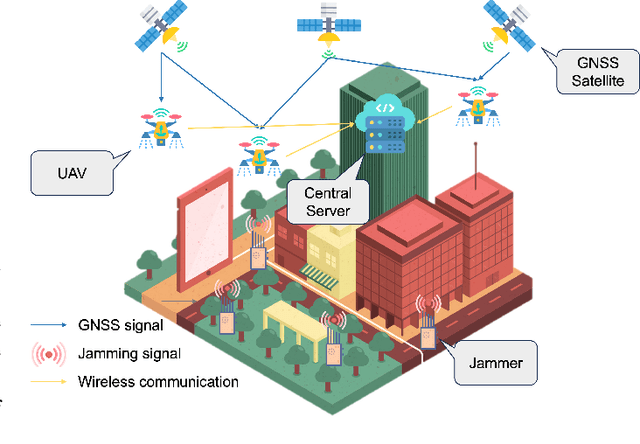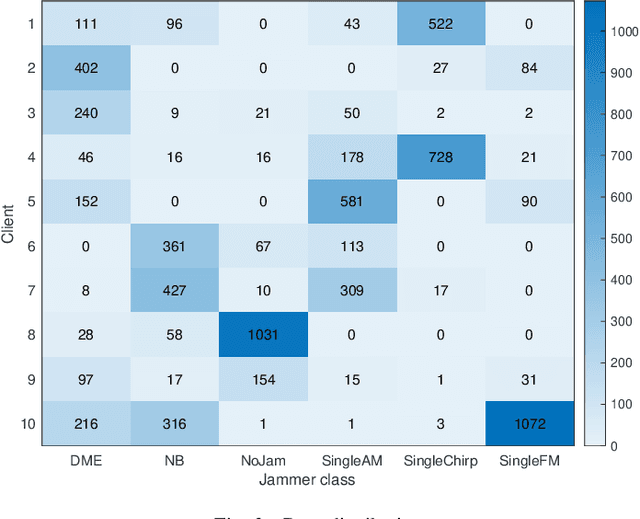Saviour Zammit
GNSS Interference Classification Using Federated Reservoir Computing
Aug 23, 2024



Abstract:The expanding use of Unmanned Aerial Vehicles (UAVs) in vital areas like traffic management, surveillance, and environmental monitoring highlights the need for robust communication and navigation systems. Particularly vulnerable are Global Navigation Satellite Systems (GNSS), which face a spectrum of interference and jamming threats that can significantly undermine their performance. While traditional deep learning approaches are adept at mitigating these issues, they often fall short for UAV applications due to significant computational demands and the complexities of managing large, centralized datasets. In response, this paper introduces Federated Reservoir Computing (FedRC) as a potent and efficient solution tailored to enhance interference classification in GNSS systems used by UAVs. Our experimental results demonstrate that FedRC not only achieves faster convergence but also sustains lower loss levels than traditional models, highlighting its exceptional adaptability and operational efficiency.
CA-FedRC: Codebook Adaptation via Federated Reservoir Computing in 5G NR
Jul 08, 2024Abstract:With the burgeon deployment of the fifth-generation new radio (5G NR) networks, the codebook plays a crucial role in enabling the base station (BS) to acquire the channel state information (CSI). Different 5G NR codebooks incur varying overheads and exhibit performance disparities under diverse channel conditions, necessitating codebook adaptation based on channel conditions to reduce feedback overhead while enhancing performance. However, existing methods of 5G NR codebooks adaptation require significant overhead for model training and feedback or fall short in performance. To address these limitations, this letter introduces a federated reservoir computing framework designed for efficient codebook adaptation in computationally and feedback resource-constrained mobile devices. This framework utilizes a novel series of indicators as input training data, striking an effective balance between performance and feedback overhead. Compared to conventional models, the proposed codebook adaptation via federated reservoir computing (CA-FedRC), achieves rapid convergence and significant loss reduction in both speed and accuracy. Extensive simulations under various channel conditions demonstrate that our algorithm not only reduces resource consumption of users but also accurately identifies channel types, thereby optimizing the trade-off between spectrum efficiency, computational complexity, and feedback overhead.
 Add to Chrome
Add to Chrome Add to Firefox
Add to Firefox Add to Edge
Add to Edge